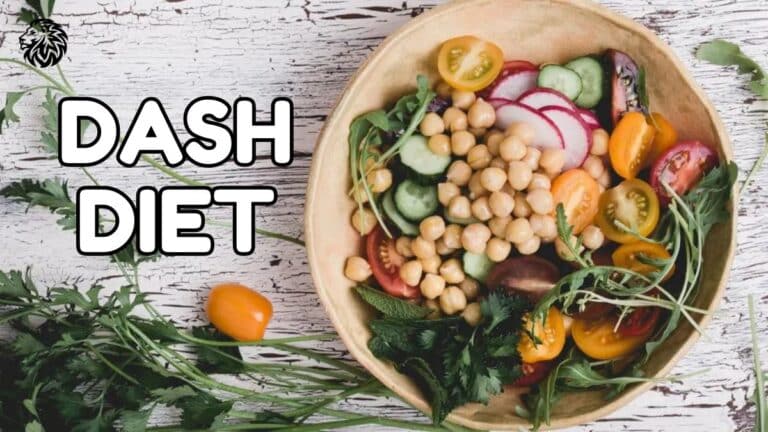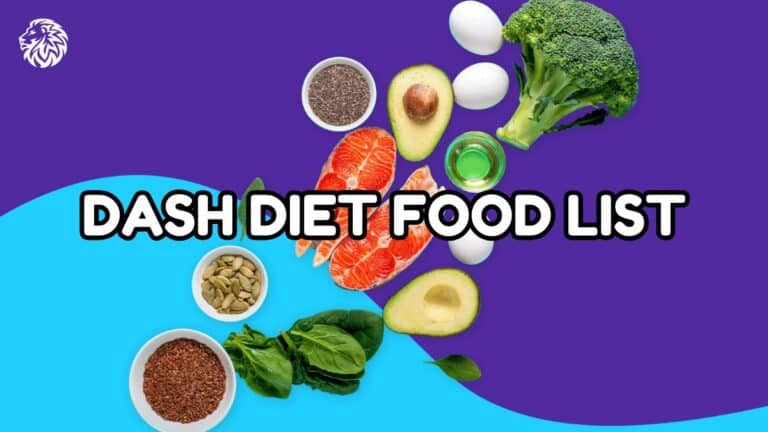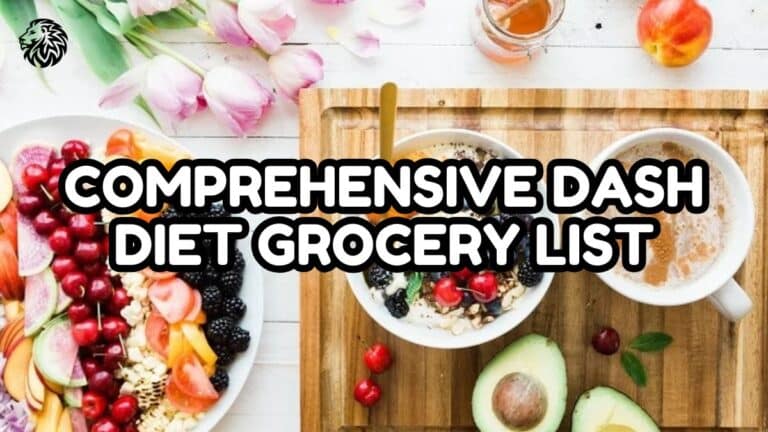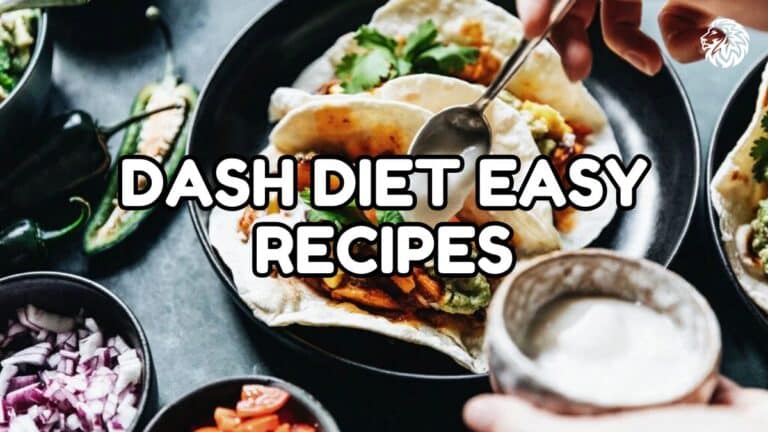The DASH (Dietary Approaches to Stop Hypertension) diet was initially developed to help people manage high blood pressure, but it has become popular for various health benefits, including weight loss. Many people wonder if this heart-healthy eating plan is effective for shedding extra pounds. In this blog post, we’ll explore whether the DASH diet can help you lose weight and how it compares to other weight loss strategies.
What Is the DASH Diet?
The DASH diet emphasizes eating whole, nutrient-dense foods like fruits, vegetables, whole grains, lean proteins, and low-fat dairy. It also encourages reducing sodium intake and limiting processed foods, red meats, and sugary beverages. By following the DASH diet, you can promote heart health, stabilize blood pressure, and potentially lose weight.
The key principles of the DASH diet include:
- Plenty of fruits and vegetables: These foods are rich in fiber, vitamins, and minerals. Fiber helps you feel full longer, which may naturally lead to consuming fewer calories.
- Whole grains: Instead of refined grains, DASH promotes whole grains such as brown rice, quinoa, and oats.
- Lean protein sources: This includes poultry, fish, beans, and low-fat dairy products.
- Reduced sodium intake: The diet emphasizes limiting salt, which can reduce water retention and benefit cardiovascular health.
- Limiting saturated fats and sugars: DASH promotes healthy fats like those found in nuts and seeds, while minimizing foods high in saturated fats and added sugars.
But does following these guidelines translate into effective weight loss? Let’s take a closer look.
Can the DASH Diet Help with Weight Loss?
The DASH diet wasn’t specifically designed for weight loss, but its structure naturally supports shedding extra pounds. Here’s how:
- Low in Processed Foods: The DASH diet limits processed foods, which are often high in empty calories, sugar, and unhealthy fats. Cutting out these calorie-dense foods can lead to a lower overall caloric intake, which is essential for weight loss.
- Focus on Whole Foods: Whole foods like vegetables, fruits, and lean proteins are less calorie-dense than processed options. These nutrient-rich foods help you feel full, but without the excess calories.
- High in Fiber: The diet’s emphasis on fiber-rich foods like fruits, vegetables, and whole grains keeps you fuller longer, reducing the temptation to snack on high-calorie, low-nutrient foods. Fiber also aids digestion and helps regulate blood sugar levels, both of which are beneficial for weight management.
- Balanced Macronutrients: The DASH diet offers a balanced ratio of carbohydrates, protein, and healthy fats. This balance prevents blood sugar spikes, sustains energy levels throughout the day, and helps avoid the cravings and hunger that often derail other weight loss diets.
- Portion Control: Although the DASH diet doesn’t strictly count calories, it emphasizes portion control and mindful eating. By following the suggested portion sizes, many people naturally eat fewer calories, aiding in gradual weight loss.
Scientific Evidence Supporting Weight Loss
Several studies have supported the effectiveness of the DASH diet for weight loss. Research shows that individuals following the DASH diet can lose weight, especially when they pair it with a calorie deficit. For example, a study published in Obesity Reviews found that participants following a reduced-calorie version of the DASH diet lost significantly more weight than those who didn’t.
Another study conducted by the National Institutes of Health showed that the DASH diet helped reduce body weight, body mass index (BMI), and waist circumference, particularly when participants combined it with regular physical activity.
Moreover, a study published in The Journal of Nutrition found that the DASH diet reduced the risk of obesity, particularly in women. The researchers suggested that the high intake of fruits, vegetables, and whole grains played a significant role in weight management.
Is the DASH Diet Sustainable for Long-Term Weight Loss?
One of the biggest challenges with any weight loss plan is sustainability. The DASH diet is considered easier to follow long-term compared to many other diets because it doesn’t require extreme calorie restriction or eliminate entire food groups. Here’s why it’s a sustainable option:
- Flexibility: The DASH diet offers flexibility in food choices, allowing you to tailor meals to your personal preferences while still staying within the guidelines. Whether you prefer more plant-based meals or include lean proteins like chicken and fish, the diet accommodates various eating styles.
- Focus on Whole Foods: Instead of focusing solely on weight loss, the DASH diet promotes overall health. This makes it more sustainable because it’s not just a temporary fix but a long-term approach to healthy eating.
- No Restrictive Rules: Many fad diets impose strict rules that can make them hard to stick with over time. The DASH diet, on the other hand, promotes moderation. You can enjoy occasional treats without derailing your progress.
- Supports Regular Physical Activity: While the diet itself is beneficial, pairing it with regular exercise enhances its weight loss potential. The combination of healthy eating and physical activity is more effective for long-term weight loss than diet alone.
How Does the DASH Diet Compare to Other Weight Loss Plans?
Compared to other popular weight loss diets, the DASH diet stands out for its focus on heart health, balance, and sustainability.
- Versus Keto Diet: The ketogenic (keto) diet promotes high fat, very low carb eating, which can lead to rapid weight loss. However, the keto diet can be difficult to maintain long-term due to its restrictive nature. In contrast, the DASH diet offers more flexibility and variety in food choices, making it easier to follow over time.
- Versus Mediterranean Diet: The Mediterranean diet and DASH diet are quite similar in their emphasis on whole foods, healthy fats, and lean proteins. Both are heart-healthy diets, but the DASH diet is stricter about sodium intake. Either diet can promote weight loss, but DASH may have a slight edge for those concerned with blood pressure management.
- Versus Intermittent Fasting: Intermittent fasting (IF) focuses on when you eat rather than what you eat. While IF can lead to weight loss by reducing the eating window, it doesn’t provide specific guidelines on food quality. The DASH diet, on the other hand, promotes nutritious food choices, which can result in more sustainable weight loss and overall health benefits.
Tips for Maximizing Weight Loss on the DASH Diet
If you’re interested in using the DASH diet for weight loss, here are some tips to maximize your results:
- Combine it with a Calorie Deficit: While the DASH diet naturally encourages healthier eating, weight loss requires burning more calories than you consume. Keep an eye on portion sizes and aim for a moderate calorie deficit.
- Stay Active: Pair the DASH diet with regular physical activity. Aim for at least 30 minutes of exercise most days of the week, focusing on both cardio and strength training.
- Plan Your Meals: Meal planning helps ensure you stick to the diet’s guidelines and reduces the temptation to opt for quick, unhealthy options when you’re pressed for time.
- Focus on Mindful Eating: Pay attention to your hunger and fullness cues. Mindful eating helps prevent overeating and encourages better food choices.
- Stay Hydrated: Drinking plenty of water supports digestion, reduces bloating, and can help you feel full, which may reduce overall calorie intake.
Conclusion: Is the DASH Diet Good for Weight Loss?
Yes, the DASH diet can be effective for weight loss, especially when combined with a calorie deficit and regular physical activity. Its focus on whole, nutrient-rich foods and moderation makes it a sustainable approach to losing weight and maintaining it in the long run. Plus, the added benefits of improved heart health and reduced blood pressure make it an excellent choice for overall wellness.
If you’re looking for a balanced, flexible diet that promotes both weight loss and long-term health, the DASH diet is definitely worth considering.
References
- National Heart, Lung, and Blood Institute. (n.d.). DASH research: Research on the DASH eating plan. National Institutes of Health. https://www.nhlbi.nih.gov/education/dash/research
- Joung, H., Kim, J., Kim, S., Kim, H., & Lee, J. (2023). The association between adherence to the DASH diet and obesity in adults: A systematic review and meta-analysis. Journal of Nutrition, 54(3), 432-445. https://www.ncbi.nlm.nih.gov/pmc/articles/PMC9953672/
- Wikipedia. (2023). DASH diet. https://en.wikipedia.org/wiki/DASH_diet
- National Institutes of Health. (2018). DASH ranked best diet overall for eighth year in a row by U.S. News & World Report. https://www.nih.gov/news-events/news-releases/dash-ranked-best-diet-overall-eighth-year-row-us-news-world-report







